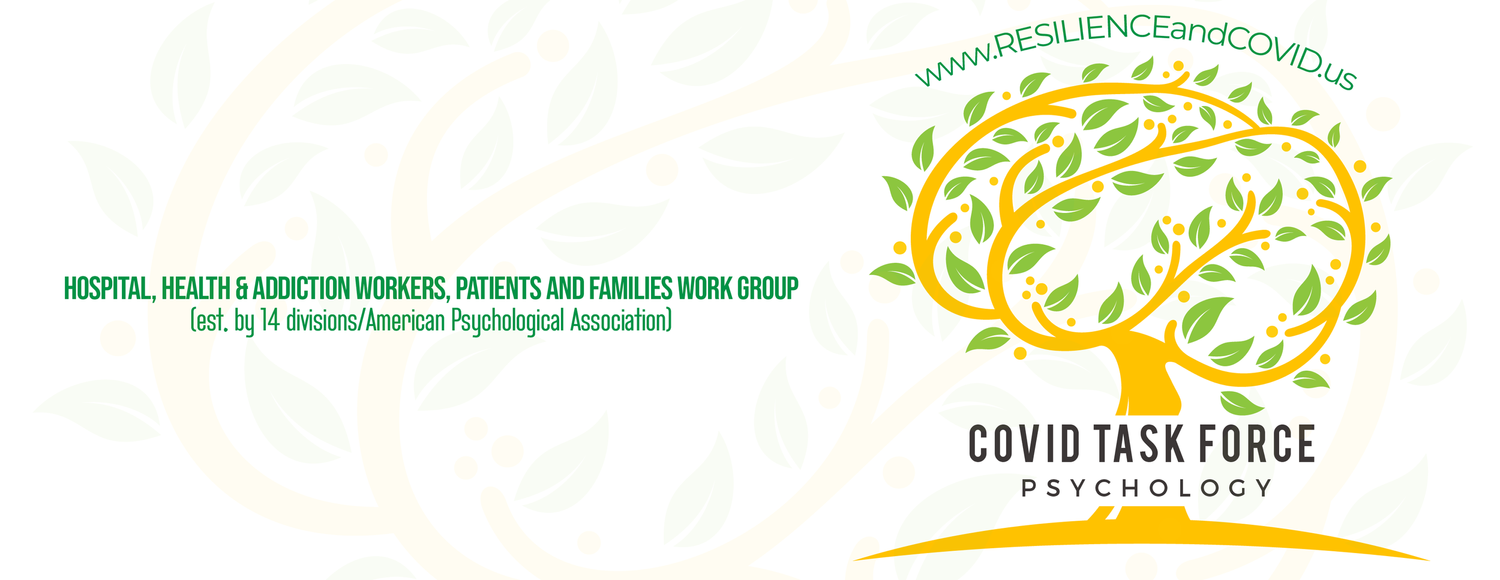Vaccine Etiquette: Tips to Have Civil Conversations
Conversations about the pandemic do not need to cause interpersonal conflicts.
KEY POINTS
For some, the vaccines have provided a sense of comfort and the hope of a return to normalcy; for others, these have become an added stressor.
Conversations about COVID-19 vaccinations can be conducted with respect and empathy, avoiding conflicts with loved ones and acquaintances.
It is important to remain respectful of each other's opinions and viewpoints and be willing to agree to disagree.
Setting boundaries for discussions, allowing disagreement, and self-reflecting on your emotions can help facilitate productive discussions.
This post was written by Denise Carballea, M.S., and Rita M. Rivera, M.S., members of the Medical and Addictions working group of the COVID Psychology Task Force (established by 14 members of the American Psychological Association), which sponsors this blog.
Since the approval of several coronavirus vaccines, people have been experiencing stress, anxiety, confusion, and curiosity regarding the topic. Due to an immense amount of information and, in some instances, misinformation, individuals may be feeling overwhelmed or confused regarding what to believe or do.
These feelings most likely encourage people to discuss COVID-19 vaccines with family members, friends, colleagues, and loved ones. However, due to the different standpoints on this topic, these conversations may be challenging and even conflict-ridden.
Source: Teka77, iStock
For some, the vaccines have provided a sense of comfort and the hope of a possible return to normalcy; for others, these have become an added stressor. It may feel natural to discuss the COVID-19 vaccines with family and loved ones; however, it is essential to remember that each person's experience and feelings may vary. Furthermore, some individuals may be open to these conversations, while others may choose to opt out. Thus, it is important to remain respectful of each other's opinions and viewpoints and be willing to agree to disagree.
Source: Fizkes, iStock
The following are some tips you can implement when discussing this topic with loved ones and acquaintances:
Ask rather than assume. If you want to discuss this topic with your loved ones, make sure to ask if they feel comfortable doing so. Remember, the pandemic has been a source of stress for everyone, and some topics may be triggering for people. It is helpful to respect other people's choice of whether they want to have a conversation on COVID-19 vaccines. Also, be aware that some people may want to have a discussion to have their viewpoints heard; they may not necessarily want advice or be told what to do.
Set boundaries before initiating the conversation. Be clear and honest about any topics you feel comfortable talking about, as well as those you do not want to discuss. Similarly, allow other people to share their boundaries and be mindful of these during the conversation. Agreeing on how to communicate with one another can avoid tension and promote productive discussions.
Be proactive rather than reactive. The goals of the conversation should be to understand one another and promote discussion of different standpoints. Even if ideas or thoughts vary, attempting to see each other's perspective on the topic may provide some insight into other people's concerns. Try to have a conversation without passing judgment and criticizing others' different viewpoints.
Agree to disagree. Even if you have a different perspective than your loved ones, try to remain empathetic while listening to them. If the other individual feels that their concerns are being invalidated, the conversation runs the risk of disconnection. When engaging in discussions, you should also try to refrain from shaming others based on their different positions. This may lead to the person closing off, feeling disrespected, and discontinuing all future conversations. Regardless of whether you both share the same viewpoint, you can choose to listen without dismissing each other.
Consider self-reflecting on your emotions. Thinking about how other people’s comments and viewpoints are making you feel can help you understand your responses. Self-reflection can give you insight into how and why your loved ones’ opinions and attitudes affect you. Understanding why something bothers you may allow for better communication with others. Self-reflection can also help you identify appropriate ways to express yourself more clearly and constructively.
Source: Peterschreibermedia, iStock
Conversations about COVID-19 vaccinations can be conducted with respect and empathy, avoiding conflicts with loved ones and acquaintances. We must also remember that immunization records are protected health information, and therefore, we should not expect everyone to be willing to disclose their medical records. Also, pandemic-related topics can be stressful and triggering, and we should not assume that everyone will feel comfortable having conversations surrounding these themes.
Even though the COVID-19 pandemic is a global crisis, each person's experience is different. During these challenging times, let's aim to communicate with sympathy and civility.



